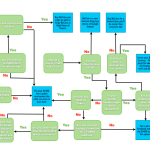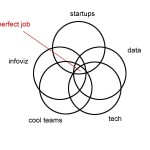I have a 2 Rules when it comes to Saying Bad thing about people.
1: Don’t. Unless you’d say it to their faces. 2: It never helps you to disparage another.
I’ve never publicly criticised anyone by name before, and I may regret breaking the 2nd of those rules. But here goes:
What’s worse is that the FCC Chairman Julius Genachowski didn’t condemn the move.
When this happen at the DOD, (Darleen Druyun, Boeing and the Tanker Scandal) people went to prison.
Calling this kind of behavior a Revolving door is too euphemistic and kind. It’s corruption. Simple as that, and the DOJ ought to begin and investigation, subpoena emails, phone records, appointment books and interviews those around the decision making process.
UPDATE: I heard a story on NPR today about this issue, and nobody seemed sufficiently disgusted. There was this quote from Thomas Susman, (head lobbyist for the American Bar Association):
“I don’t like the results of saying you can’t do it,” he says. “And so, therefore, I suspect I’m willing to live with public perception, you know, of cronyism, and the occasional situation where it actually proves detrimental to the public good.”
So let me see, Mr Susman, doesn’t like limiting the career potential of 1 individual even when it might prove detrimental to the public good...You know, in regulating wall street, we’ve made insider trading illegal becuase it is detrimental to the public good, even though it limits some individuals career opportunities!
Clearly, this is non-sense. Proper Sunshine Regulations ought to suffice. I think that a 2 year moratorium on going to work for any company that is under the jurisdiction of regulation of the Agency for which you work would be a good start. In addition FULL DISCLOSURE of any Employment discussions ought to be required. Meredith Baker is announcing this new position before the END of her term, which means by definition she had talks with a company that she was bound by oath to be REGULATING about going to work for that company, WHILE SHE WAS REGULATING THEM. Any such talks need to be disclosed. Obivously there would need to be an ethics office that could approve certain exceptions (For Instance, the FCC regulates the wireles chips in Apple devices, which might Bar an FCC official from working at Apple. This would follow a standard and public exemption process to the law.)









